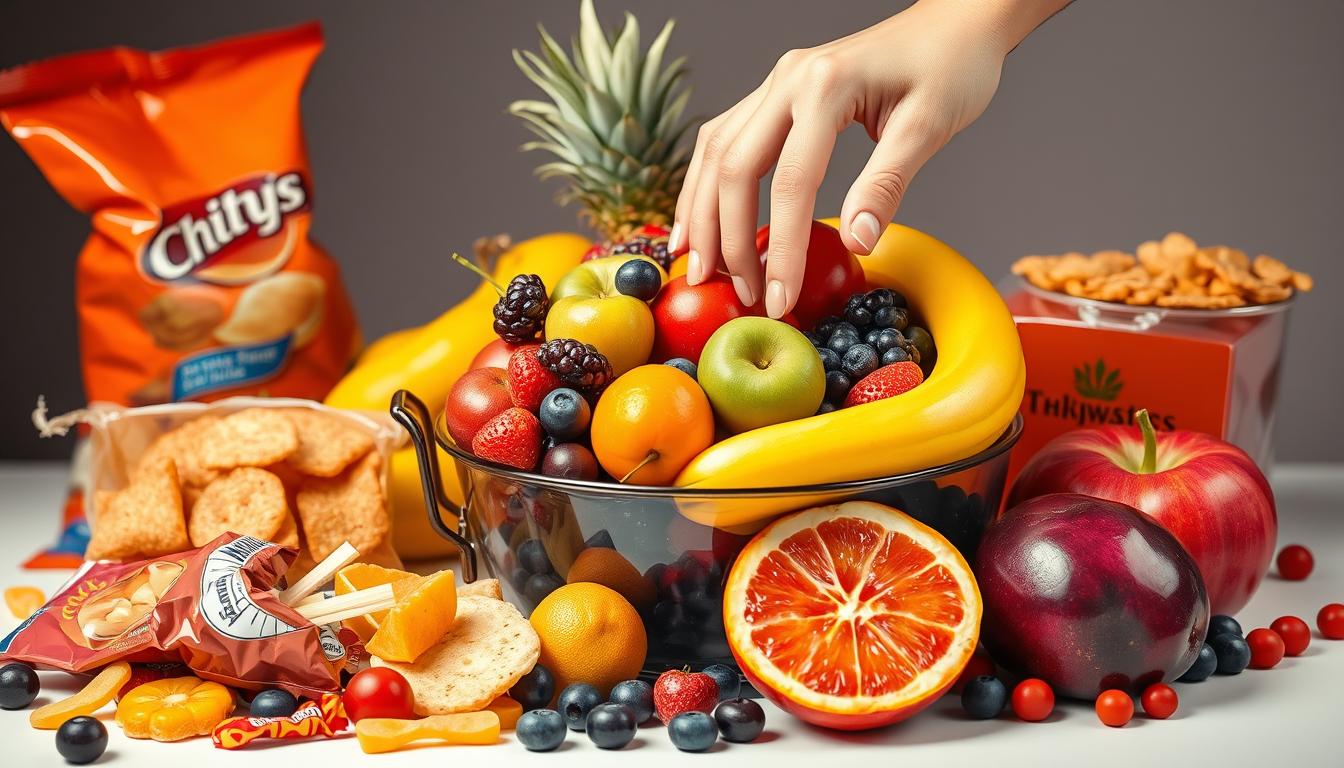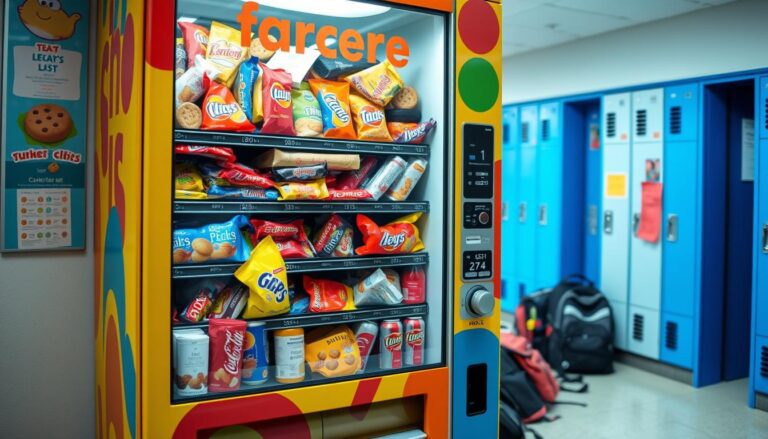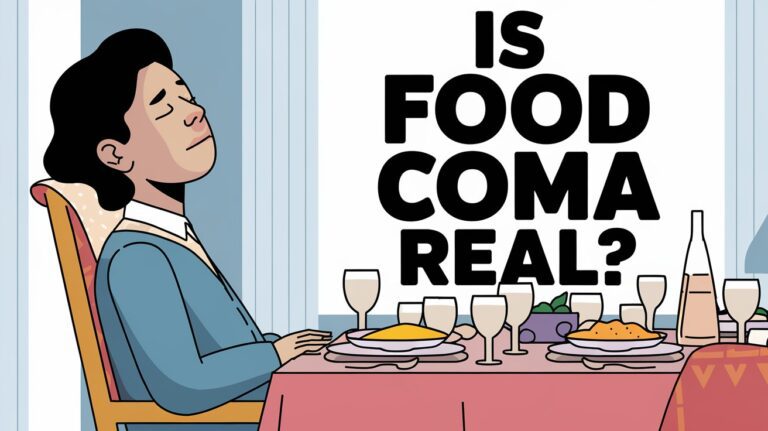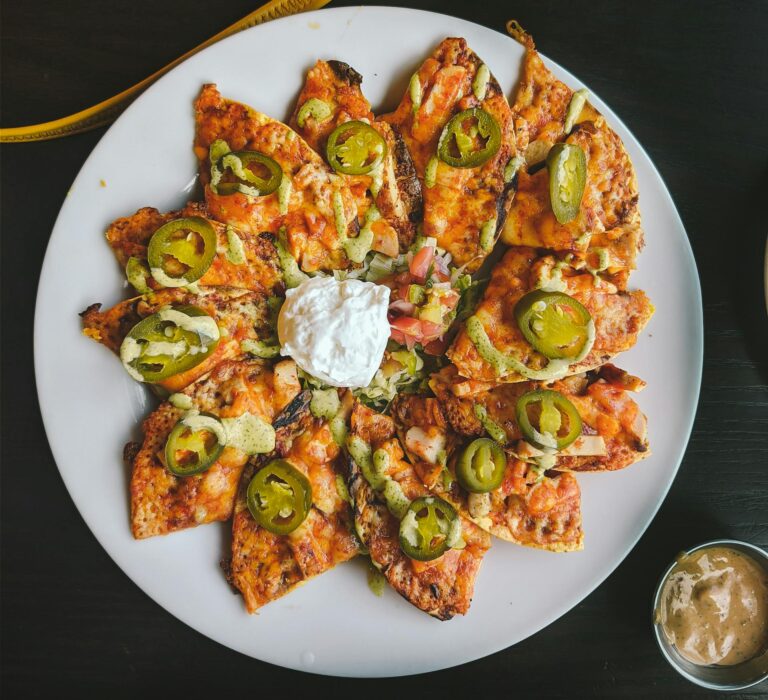How To Say No To People Who Offer Junk Food: Tips For Staying Healthy
In today’s world, it’s easy to get tempted by junk food. Chocolate, donuts, candy, fast food… it’s all so delicious, right?
But learning to say no politely can be key to staying healthy. This guide will help you stay on track with your health goals, even when faced with unhealthy snacks.
Knowing why you say no and being assertive are crucial. This way, you can confidently turn down junk food and keep your focus on wellness. Studies show that changing how you see junk food can reduce cravings.
Junk Food is always going to be part of our lives on some level, but moderation is key. And when you know you’ve had enough, or need to abstain, or are trying to change your eating habits, then it’s no fun when you feel pressured by people offering food — even when they don’t mean to pressure you!
So, let’s explore how to say no to unhealthy snacks without feeling awkward.
Key Takeaways
- Understanding personal reasons for declining unhealthy snacks helps strengthen resolve.
- Identify triggers that often lead to junk food offers in social situations.
- Practice assertive communication to express your dietary preferences.
- Role-play scenarios with friends to build confidence in saying no.
- Using humor can ease tension and make declining offers more enjoyable.
- Suggesting healthier alternatives encourages a positive eating environment.
- Creating a support system with like-minded friends enhances commitment to healthy choices.
Understand Your Reasons for Saying No
Knowing why you say no to junk food helps you stay strong. It’s important to understand the health risks of junk food. Eating it often can cause obesity, diabetes, and heart disease.
The effects of junk food on your mind are also significant. It can make you crave more, leading to a cycle of unhealthy eating. Knowing this helps you resist junk food at social events.
Health Consequences of Junk Food
The table below shows the health risks of junk food:
| Health Issue | Description |
|---|---|
| Obesity | Increased calorie intake contributes to weight gain and obesity. |
| Diabetes | High sugar consumption raises blood sugar levels, leading to insulin resistance. |
| Cardiovascular Diseases | High levels of saturated fats and trans fats can lead to heart disease. |
| Mental Health Issues | Poor dietary choices may increase the risk of anxiety and depression. |
| Hair Loss | Research shows a correlation between junk food and premature hair loss. |
Psychological Impact of Eating Junk Food
Food is a big part of social life, but it can also cause problems. Eating junk food can lead to:
- Increased cravings and subsequent overeating.
- Feelings of guilt after consuming unhealthy options.
- Social pressure to conform to group eating habits.
- Struggles with managing emotional responses linked to food choices.
Knowing these points helps you set clear eating goals, even before social events. With knowledge about junk food’s health and mental effects, you can say no without feeling pressured.
Identify Triggers That Lead to Junk Food Offers
Understanding what triggers junk food cravings is key to making better choices. It’s important to know when and where junk food is likely to be offered. Emotional states can also play a big role, making it hard to resist unhealthy snacks.
By recognizing these triggers, you can prepare yourself to choose healthier options. This way, you can stay on track with your diet goals.
Social Situations to Be Aware Of
Many social settings can tempt you with junk food. Here are a few examples:
- Office Parties: Colleagues often bring in snacks, making it easy to indulge.
- Holidays: Celebratory events are typically full of rich and sugary foods.
- Family Gatherings: Traditional meals may include multiple junk food options.
- Dinner Out: Restaurants may offer large portions of calorie-dense foods.
Knowing about these situations helps you plan ahead. You can find ways to enjoy them without giving in to junk food.
Emotional States That Lead to Offers
Emotions can make you crave junk food. Here are a few common ones:
- Stress: Stressful situations can create a desire for comforting foods that are often unhealthy.
- Boredom: Lack of stimulation may lead to snacking on junk food for entertainment.
- Celebration: Happiness or excitement can trigger overeating as a reward.
Being aware of these emotions helps you find healthier ways to cope. This way, you can avoid making impulsive junk food choices. It’s all about making better decisions and sticking to your goals.
Practice Assertive Communication
Assertive communication is key in dealing with junk food offers. It’s about speaking up without being aggressive. This way, you can say no to junk food without feeling bad or hurting others.
How to Be Clear and Direct
Being straightforward is crucial when you say no to junk food. Saying something like “No, thank you, I’m not eating junk food today” is clear. This helps you respond well without any confusion.
Here are some examples of how to say no politely:
- “I appreciate the offer, but I’m focusing on healthier choices.”
- “Thanks for thinking of me, but junk food doesn’t align with my health goals.”
- “I’m trying to maintain a healthy diet, so I’ll pass.”
The Art of Saying No Politely
Saying no nicely is important. It keeps respect and friendships strong. You can say “Let me get back to you” to buy time for a good answer.
Knowing your rights, like saying no without explaining, helps you feel confident. Saying yes too much can hurt your relationships. Using humor can also make saying no easier.
Using these communication tips helps you stick to your health goals while being kind to others. This way, you can improve your self-esteem and build better relationships.
Role-Play Scenarios with Friends
Role-play scenarios can really help you deal with junk food offers. By practicing in different situations, you get better at handling these challenges. It’s a great way to prepare for real-life moments, whether it’s at a party or work.
This practice is key for improving how you talk about food choices. It makes you more confident and ready for any situation.
Practicing Responses in Different Situations
Role-playing with friends lets you practice saying no to junk food. You can practice in many settings, like parties or meetings. Here are some tips:
- Practice saying no to junk food confidently.
- Have conversations with friends about your food choices.
- Learn how to steer conversations towards healthier options.
Rehearsing helps you feel more confident. This way, you can handle junk food offers better in real life.
Getting Feedback to Improve
Getting feedback from friends is super helpful. They can tell you how you did with your body language and tone. This feedback helps you get better and feel more confident.
Talking about your role-play helps you learn more. You can share ideas and strategies. This makes you better at communicating about food choices.

Use Humor to Decline Offers
Using humor to say no to snacks can turn a tense moment into a fun chat. It helps avoid the stress of saying no. In places like holiday parties, where snacks are plentiful, a witty reply can really help.
Lighthearted Responses You Can Use
Here are some funny ways to say no to junk food:
- “I’d love to, but I’m on a junk food detox!”
- “Thanks, but my waistline is having a meltdown!”
- “I’m conducting an experiment on resisting delicious food!”
- “I’m saving up for a donut binge later!”
Examples of Humorous Rejections
Humorous no’s can make everyone smile and show you mean it. Here are some funny examples:
- “Thanks for the offer, but I already have a healthy relationship with my veggies!”
- “I can’t take that snack; it doesn’t fit into my kale-and-quest goals!”
- “I’d eat that, but I’m training for the Crown of Healthy Eating!”
- “I’m on a strict no-junk food diet—my couch is full of treats!”
When faced with people pushing food, these funny no’s can entertain and show your goals. Friends will laugh and respect your choices. Using humor to decline snacks makes social situations with snacks more fun.
Suggest Healthier Alternatives
When junk food is offered, suggest better choices. In social settings, offer fruit or veggie snacks. This shows you care about health and encourages others to do the same. Bringing healthy food to gatherings shows you’re ready for any situation.
Offering Fruit or Veggie Snacks
Fruit and veggie snacks are great for replacing junk food. They’re low in calories and full of nutrients. For instance, cut veggies with hummus or a fruit platter can curb cravings without harming your health goals. Here are some ideas:
- Carrot sticks with a low-fat yogurt dip
- Apple slices with almond butter
- Cherry tomatoes and cucumber slices with guacamole
- Dried fruits like apricots or dates as an alternative to candies
- Popcorn seasoned with herbs instead of salt
Bringing Your Own Healthy Options
Bringing your own snacks to parties is a smart move. It lets you enjoy tasty food while staying healthy. You can make your own versions of junk food or pick ready-to-eat snacks. Here are some ideas:
| Common Junk Food | Healthier Alternative |
|---|---|
| Regular Pizza | Whole wheat veggie pizza with reduced cheese |
| Ice Cream | Low-fat frozen yogurt or banana Nice Cream |
| Potato Chips | Homemade baked kale chips |
| Sweetened Soft Drinks | Sparkling water infused with fresh fruit |
| Chocolate Bar | Dark chocolate with nuts |
Choosing healthier options helps create a better eating culture in your circle.
Create a Support System
Building a support system is key for healthy eating. Being around positive people helps you stay focused. Friends who care about health offer encouragement and help you stay on track.
When you’re with people who value health, it’s easier to make good choices. This creates a supportive environment for everyone.
Friends Who Prioritize Health
Having friends who value health makes a big difference. Here’s how:
- They share healthy meal ideas and recipes.
- They join you in exercise, like running or fitness classes.
- They talk openly about their health successes and challenges.
This turns healthy eating into a team effort. It strengthens your support system for healthy eating.
Online Communities for Healthy Eating
Online groups focused on healthy eating are very helpful. They offer lots of resources and advice. You can join forums, follow social media groups, and share tips with others.
These communities keep you accountable and inspired. They provide a safe place to share your health journey.
| Community Type | Description | Benefits |
|---|---|---|
| Facebook Groups | Private groups where members discuss healthy recipes and tips | Peer support and shared experiences |
| Reddit Subreddits | Forums for sharing meal plans and challenges | Anonymity allows for open conversations |
| Profiles dedicated to healthy eating and fitness | Visual inspiration through photos and stories | |
| Online Forums | Dedicated sites for discussions about weight loss and nutrition | Access to experienced members with similar goals |
Being part of these communities makes healthy eating easier. It helps you reach your goals and feel connected.
Educate Others About Your Choices
Sharing your dietary choices with friends and family can lead to understanding and respect. Teaching others about nutrition creates a supportive environment. When people grasp the effects of junk food, they tend to respect your choices more.
Sharing Information on Nutrition
When talking about your choices, focus on sharing info about junk foodand its effects. Unhealthy food marketing greatly influences eating habits, mainly in kids. By explaining your choices based on nutrition science, you start healthier conversations. Sharing why you avoid junk food might inspire others to think about their eating habits.
Why You’re Saying No
Being open about your food choices opens up conversations. Explaining your reasons can clear up misconceptions and ease any doubts from friends. Families and social circles greatly influence our eating habits. So, being around people who value healthy eating can help you make better choices. Sharing your goals can also reduce pressure, creating a supportive environment.

Set Boundaries in Your Social Circle
Setting clear boundaries is key to a healthy lifestyle, including what you eat. By sharing your health goals, you make your path clear and create a supportive space. Friends and family will better understand your journey if you’re open about it.
Setting limits on junk food helps avoid confusion. It also encourages your loved ones to respect your choices.
Communicate Your Health Goals
Being open about your health goals is vital. When you share your aspirations with those around you, you build support. Here are some tips:
- Share specific goals, like cutting down on sugar or eating more veggies.
- Explain why you’re making these changes, highlighting the benefits.
- Ask questions to clear up any doubts about your choices.
Enforcing Your Boundaries
After sharing your goals, it’s important to stick to your boundaries. You might face junk food offers. Here’s how to handle them:
- Politely say no, explaining your commitment to healthy eating.
- Change the subject to keep the focus on healthy choices.
- Always respond the same way to show you’re serious about your food choices.
Using these strategies helps you stick to your boundaries around junk food. Strong boundaries create a healthier social circle and improve your well-being.
| Boundary Strategy | Benefit |
|---|---|
| Clear Communication | Ensures that others understand your goals |
| Consistent Responses | Reinforces your commitment and helps avoid peer pressure |
| Supportive Environment | Encourages friends and family to respect your health choices |
| Redirecting Conversations | Shifts focus away from unhealthy food discussions |
Develop a Personal Mantra
Creating a personal mantra can really help you stick to healthy choices. It acts as a constant reminder of your goals. It gives you powerful encouragement, even when things get tough.
Positive affirmations like “I choose health over junk” help you stay focused. They remind you to resist junk food. Making these mantras is good for your nutrition and overall well-being.
Examples of Positive Affirmations
When making your personal mantra, think about these positive affirmations:
- I nourish my body with healthy choices.
- Every healthy meal brings me closer to my goals.
- My cravings are temporary; my health is permanent.
- I deserve to feel good in my skin.
- Choosing health is my priority.
How Mantras Strengthen Your Resolve
Using a personal mantra helps you focus on well-being. By repeating your chosen affirmation, you can handle cravings better. Dr. Ethan Kross’s research shows that “distanced self-talk” helps in reaching health goals.
Putting your mantra in daily routines, like memorizing it, has a big impact. Replacing bad habits with good ones makes it easier to get healthier. This way, you build up your strength against junk food by making conscious choices.
Build Confidence in Your Choices
It’s important to feel confident when you choose healthy foods, even when others offer junk. Using positive self-talk can help you stay committed to healthy eating. This mindset helps you feel stronger and more determined, even when tempted.
Positive Self-Talk Techniques
Positive self-talk can be a big help when making food choices. Here are some ways to do it:
- Remind yourself why you choose healthy foods.
- Picture yourself saying no to junk food in social situations.
- Use positive phrases like “I enjoy making healthy choices” to stay motivated.
- Replace negative thoughts with positive ones that support your health goals.
Overcoming Peer Pressure
Dealing with peer pressure about junk food needs smart strategies. Over 70% of people say friends or family push them to eat unhealthy foods. Here’s how to stand up for your choices:
- Prepare what to say when offered junk food.
- Use health reasons to explain your food choices, as 80% of people find this helpful.
- Focus on the healthy foods you enjoy, not just what you avoid, as 65% do.
- Surround yourself with friends who also choose healthy foods.
A personal mantra can also help you resist social pressure. Meal planning and tracking your nutrition can boost your confidence even more. As you get more confident, you’ll find it easier to make healthy choices, even when others offer junk food.
Celebrate Your Successes
It’s key to celebrate your wins on the journey to healthy eating. This keeps you motivated and makes positive habits stick. Saying no to junk food or sticking to a meal plan boosts your confidence and determination.
When you celebrate your achievements, you’re not just thanking yourself. You’re also building a mindset that values health.
Acknowledging Your Efforts
As you work towards healthier choices, it’s important to acknowledge your hard work. Celebrating your successes in healthy eating shows that your efforts are worth it. It’s not just about reaching your goals but also enjoying the small wins.
By recognizing your progress, you create a cycle of positivity. This encourages you to keep making smart choices.
Rewarding Yourself for Healthy Choices
It’s tempting to treat yourself with food, but be careful. This can lead to unhealthy eating habits. Instead, think about non-food rewards that make you feel good, like a massage or a shopping trip.
These activities not only reward your healthy choices but also deepen your appreciation for living well. Find ways to celebrate that don’t harm your health goals, making your successes truly rewarding.







